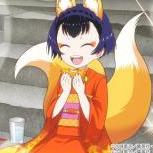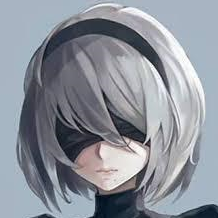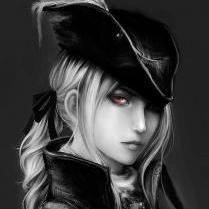Leaderboard
Popular Content
Showing content with the highest reputation on 08/07/20 in all areas
-

List of VNs with official english release
yuriyume reacted to bakauchuujin for a topic
Here is a list of VNs officially released in english, I will likely not update this list anymore after August 2021 as I don't see much of a point in it anymore with improvements to the search function of vndb. Orange text means confirmed for an official english release while yellow text means that a part has been released but not the entire VN. I have also made a list with the ones with physical release, this list is sorted the same way as this but also has info on where the titles can be bought and if it is available List of physical english releases of VNs MangaGamer (Store) Sekai Project (Homepage)/Denpasoft (Store) JAST USA (Store) NekoNyan (Store) Frontwing (Homepage) Sol Press (Store) Shiravune (Loves DRM, especially Denuvo) Visual Arts Fruitbat Factory (Store) MoeNovel (Burn in hell) Cherry Kiss Games (Homepage) Winged Cloud Degica Aksys Games (Store) XSEED Games (Store) NIS America (Store NA, Store EU) PQube Others (Japanese) Others (not japanese) Himeya Soft (Bankrupt) Hirameki International (Quit the VN market) SakuraGame/Paradise Project (Machine translated, do not buy from them)1 point -

Learning Japanese
Chronopolis reacted to MaggieROBOT for a topic
ifyouremoveallkanjijapanesewillbesomewhatlikethisandthisispainfulenoughtoreadanditsonlyonesentencelongseriouslyyoudontwantthat *cough* that said, my big brain take is that kanji is nothing and the true beast of Japanese is deciphering katakana because maaaaaaaaaan the way they spell some foreign words...1 point -

JRPG: Growlanser IV
Templarseeker reacted to Clephas for a blog entry
The Growlanser series is one of those weird, hardly known jrpg series that died out after the ps2 era (mostly because its gameplay was too traditional, but also because the transition to 2.5D sprites failed so miserably in V and VI, along with the derivative, predictable story). However, before its death, it produced four first-class games, three of them linked in a single chronology. IV, also known as Wayfarer of Time, is the exception in the series as a whole, being the only entirely standalone game. Growlanser IV's Western release was on the PSP (also playable on the Vita and PSTV) with a modified main route and an 'evil' route that you could access on NG+. The first four Growlanser games can be said to be very attractive to those who like player agency. This is because, depending on how you fight, how you play, and what conversation choices you make (three of the four protagonists are silent ones whose) you could not only alter your own perceptions of the main character, but you could also alter the ending and even the game flow as a whole dramatically. Growlanser IV isn't an exception to this, but in a way it is easier. One reason is that you aren't required to get the highest rating on all story missions to get access to the 'true' ending. Rather, it uses a 'fate alteration' system which allows you to take on sidequests, take various actions in combat, and make choices in conversations that alter how the game ends, who lives, and who dies. The 'Modified Route', which is pretty much the 'good' route, pretty much requires you to alter every possible character's fate in order to create the result of ten major characters still being alive past the turning point of the story and the end. With some of these characters, it is as simple as saving them in a certain story battle, with others it requires making the right choices in conversations with them in order to change how they act, thus preventing their deaths. In this way, I came out of Growlanser IV feeling that, for the first time in a long time, that player agency actually mattered. Hell, I never thought scolding a girl about throwing things then showing her kindness would give me an opportunity to save her soul later. The main story itself is heavy on war politics, much like all the other games in the series. In this case, it is a war story spread across about four years (my estimate) that ends up involving the whole of the known world. The protagonist, raised in a mercenary outfit, ends up getting involved with saving the world and the nations in it... but you rarely see him being treated like a 'chosen one' outside of a few of his own companions. Rather, most reactions are based in that person's standpoint and affiliation, which made both the enemies and allies feel real to me in a way few jrpgs ever manage. This game manages to avoid the traditional pitfalls of the average jrpg. What do I mean? I mean that tendency toward hot-blooded idealism and dew-eyed innocence about human nature that ruin 90% of JRPGs storywise. I mean, a king isn't interested in saving the world... he is interested in enriching his country. Good people in the wrong position will do bad things, and bad people who can benefit from it will do good things. The characters feel like people, and I don't feel like I'm talking to carbon copies of characters from a thousand other jrpgs like I do with most mainline jrpgs. The battle system in this game is a combination of turn-based and real-time strategy. Generally speaking, you start out at a certain point of the map, and your characters move in real time when you aren't making choices about their next action. It is possible to alter their course, and you can block enemies' routes with your warriors' bodies. Knacks (non-magic activation skills) can be used to strike hard, slow enemies' turns,or slow their chanting of magic. Magic takes a while to chant, but in exchange you can take normal actions immediately afterward, and spells can be canceled at any time just by pressing the triangle button and going to the character in question. Perhaps the game's biggest overt weak point gameplay-wise is the way you learn skills (passives), Knacks (instant-use attack/support/debuff/buffs), and magic. They are learned by attaching spellstones to the characters' ring weapons (three to a weapon, with the level of the stone you can attach limited by the ring's slots) and killing enemies in battle. The reason why this is a problem is simple... only the character who deals the fatal blow to an enemy gains ability points for their... abilities. A warrior who can take out five enemies at once with the use of the circle strike knack is going to find it easier to learn abilities than a mage or archer that can only strike one enemy at a time (synchronize spells later on to cast area spells utilizing multiple characters... but it still can't beat the quickness of AOE knacks). The greatest help to the player is the fact that you can buff before going into battle using spells, thus eliminating the need to tie up magic users in buffing for the first part of a battle. Considering that most story battles have time limits, this is an issue. This game rewards clever use of the systems like the arena and buff spells and will seriously sodomize you if you go through the game without thinking or preparing. Overall, Growlanser IV was the series' peak, and it saddens me greatly that the series was killed in the PS2 era. This game is about sixty hours long for the first playthrough (successive playthroughs are easier), and it is one of the better rpg stories I've ever played, being somewhat reminiscent of Suikoden, which is funny, considering they rose to cult popularity around the same time.1 point


